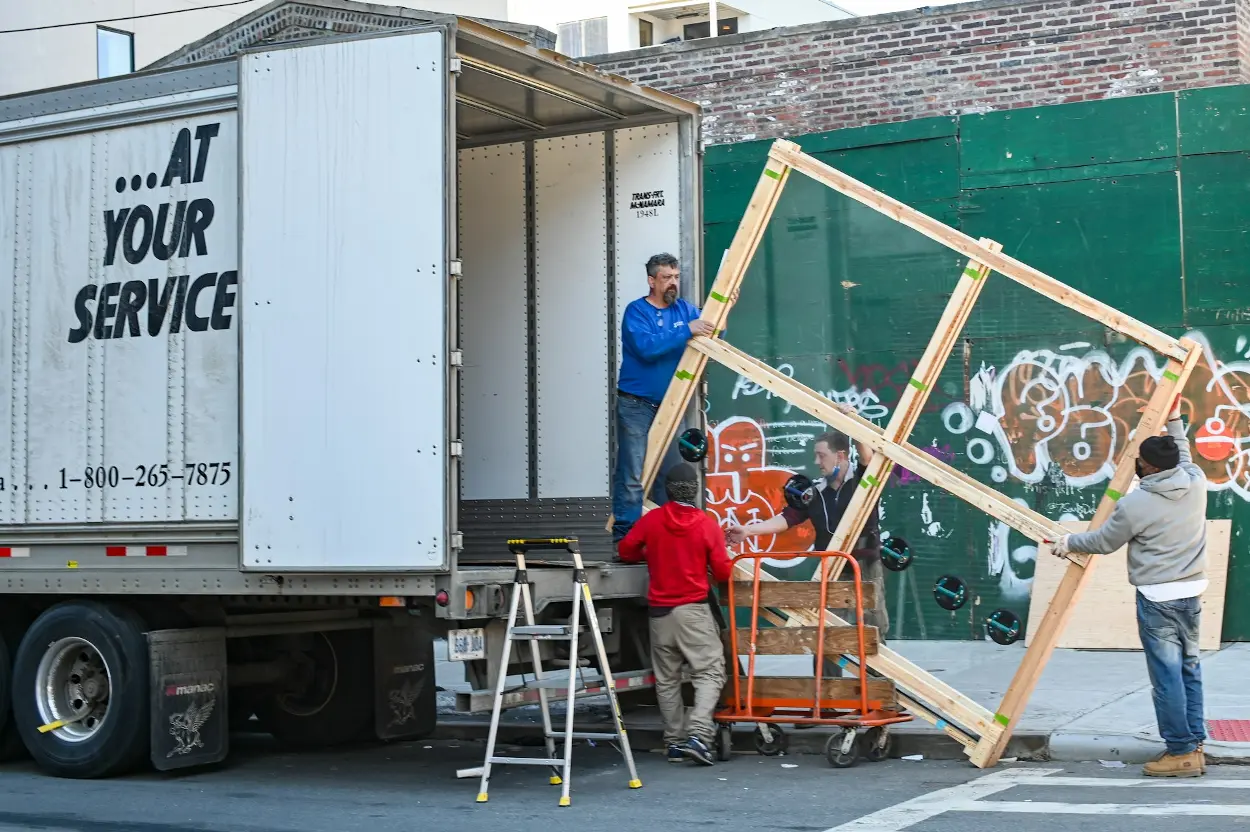Interstate Moving Services: Complete Guide to Cross-State Relocation [2025]
Moving across state lines marks a significant life transition, and understanding the ins and outs of interstate moving services can make all the difference in your relocation experience. Whether you're moving for a new job opportunity, family reasons, or simply seeking a change of scenery, this comprehensive guide will walk you through everything you need to know about interstate moving in 2025.
If you are still deciding on whether to move or build a home addition, check out: Home Addition or Sell Your House
Understanding Interstate Moving Services: More Than Just Transportation
One might ask, "What exactly makes interstate moving different from local moving?" Interstate moving services involve specialized companies licensed to transport household goods across state lines. These companies must adhere to strict federal regulations and maintain proper insurance coverage to protect your belongings during long-distance transit.
Interstate moving services include the packing and shipping of your items, but that's not where our relocation services end. Among other things, finding the right Realtor locally and at your destination is key: we help you find the right one for FREE."
The True Cost of Interstate Moving
Perhaps the most pressing question for many is, "How much will an interstate move cost?" While every move is unique, understanding the key factors that influence pricing can help you budget effectively:
- Distance of your move
- Weight and volume of your belongings
- Seasonal timing
- Additional services requested
Based on current market data, here's what you can typically expect to pay:
| Distance | Average Cost Range |
|---|---|
| Under 500 miles | $2,000 - $5,000 |
| 500-1,000 miles | $4,000 - $8,000 |
| Over 1,000 miles | $6,000 - $12,000 |
For a typical 2-3 bedroom home (approximately 7,500 pounds of belongings) moving 1,000 miles, the average cost hovers around $4,890.
For help finding the right mover, scheduling, and our other interstate moving services reach out and let us know how we can help:
Planning Your Interstate Move: A Strategic Approach
The key to a successful interstate move lies in careful planning and preparation. Here's a strategic timeline to ensure nothing falls through the cracks:
8 Weeks Before Moving Day
Start by researching and vetting potential moving companies. (We do this for you with our network of friends and partners). Look for these essential credentials:
- Valid USDOT number
- Proper licensing
- Positive customer reviews
- Comprehensive insurance coverage

6 Weeks Before Moving Day
Begin the decluttering process. One might ask, "Is it worth moving everything I own?" Consider this: every 100 pounds you eliminate from your move could save you between $50-100 in moving costs. Plus, our friend Marie Kondo would be proud.
4 Weeks Before Moving Day
Start packing non-essential items and gather necessary supplies. Create a detailed inventory of your belongings, which will prove invaluable for insurance purposes and keeping track of your items during transit.
Cost-Saving Strategies for Interstate Moving
Smart planning can significantly reduce your moving expenses without compromising on service quality:
- Schedule your move during off-peak seasons (October through March)
- Declutter aggressively before moving
- Compare quotes from multiple licensed movers (we bring you the best option for your situation)
- Consider a hybrid approach: self-pack with professional transportation
- Look for available discounts or promotions
Special Considerations for Valuable and Fragile Items
When it comes to precious belongings, proper protection is crucial. High-value items require special attention during an interstate move. Consider specialized crating services for artwork, antiques, or delicate electronics. Many insurance policies have limitations on high-value items, so discuss additional coverage options with your moving company.
Preparing for Moving Day
A successful moving day starts with proper preparation:
- Pack an essentials box containing:
- Important documents
- Basic tools
- Personal care items
- Medications
- Chargers and basic electronics
- Create a floor plan for your new home to help movers place boxes in the correct rooms
- Keep important documents easily accessible:
- Moving contract
- Insurance papers
- Inventory list
- Contact information for your moving coordinator

Conclusion
Interstate moving requires careful planning and consideration of multiple factors. By understanding the costs involved, preparing adequately, and choosing the right moving service, you can ensure a smooth transition to your new home across state lines.
Remember to verify all credentials and get multiple quotes before making your final decision. With proper preparation and the right moving partner, your interstate move can be a manageable and even positive experience.